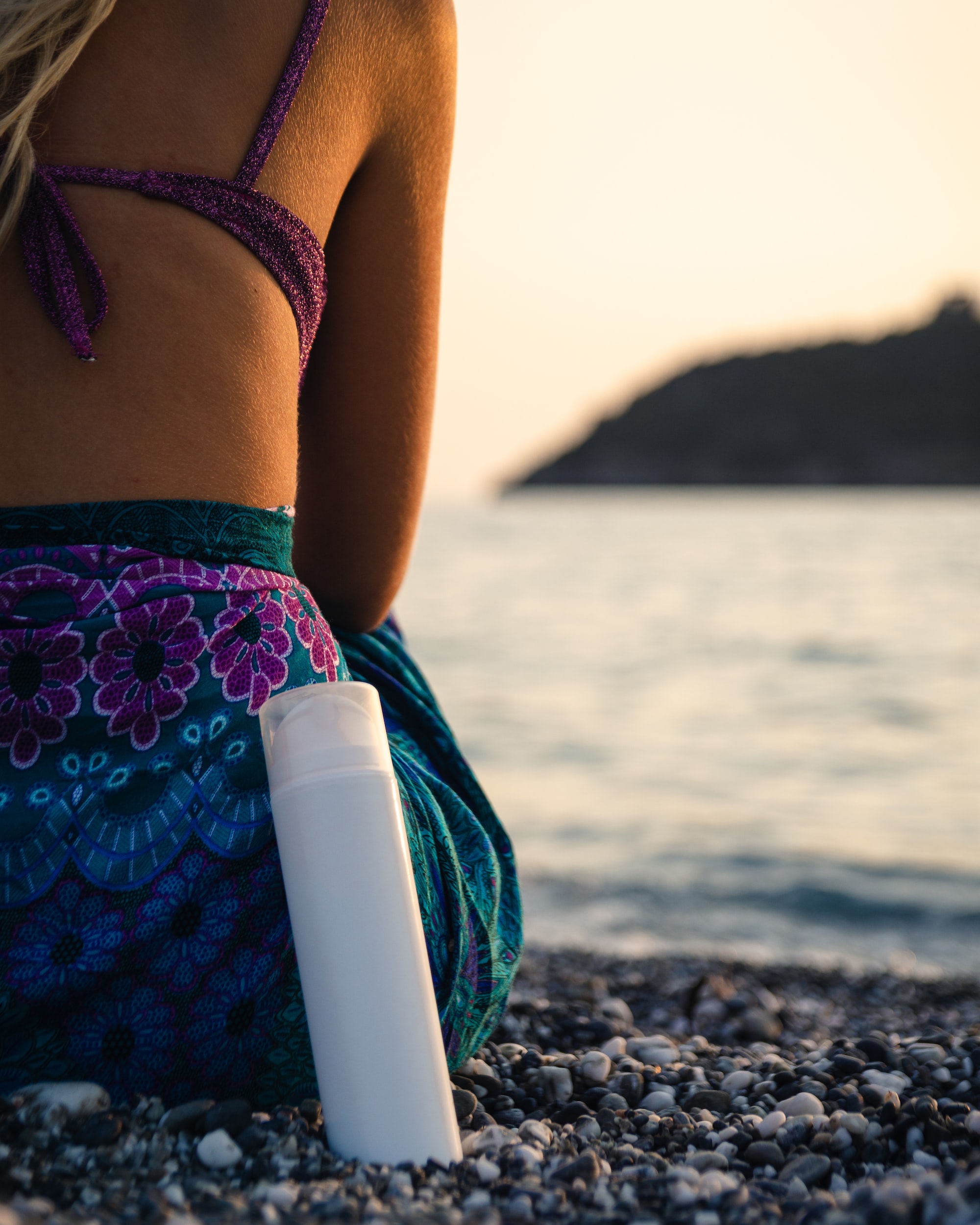When you’re pregnant, it’s important to protect your skin from the sun’s harmful rays. But with so many sunscreens on the market, it can be hard to know which ones are safe to use.
Here are a few things to look for in a pregnancy-safe sunscreen:
- Physical sunscreens. Physical sunscreens work by reflecting the sun’s rays, and they are generally considered to be safer for pregnant women than chemical sunscreens. The active ingredients in physical sunscreens are zinc oxide and titanium dioxide.
- Broad spectrum protection. A broad-spectrum sunscreen protects against both UVA and UVB rays. UVA rays are responsible for premature aging, while UVB rays cause sunburn.
- SPF of 30 or higher. An SPF of 30 or higher will protect your skin from 97% of the sun’s UVB rays.
- Water resistant. If you’re going to be sweating or swimming, choose a sunscreen that is water resistant.
- Fragrance-free. Fragrance can be irritating to some people, so it’s best to choose a fragrance-free sunscreen.
Here are a few pregnancy-safe sunscreens to consider:
- Hello Bello Mineral Sunscreen Stick This sunscreen is made with 100% mineral ingredients, including zinc oxide and titanium dioxide. It is broad spectrum and water resistant, and it is also fragrance-free and hypoallergenic.
- EltaMD UV Clear Broad-Spectrum SPF 46 This sunscreen is another good option for pregnant women. It is also made with zinc oxide and titanium dioxide, and it is broad spectrum and water resistant. It is also non-comedogenic, which means it will not clog your pores.
- Thinksport Safe Sunscreen This sunscreen is made with non-nano zinc oxide and is certified by the Environmental Working Group (EWG) as a “best choice.” It is also fragrance-free and water resistant.
- Neutrogena Sensitive Skin Sunscreen Lotion This sunscreen is made with a blend of physical and chemical sunscreen ingredients, and it is designed for sensitive skin. It is also fragrance-free and water resistant.
- CeraVe Facial Sunscreen SPF 30 This sunscreen is made with hyaluronic acid and ceramides to help hydrate and protect the skin. It is also non-comedogenic and oil-free.
It is important to note that there is no one-size-fits-all answer when it comes to pregnancy-safe sunscreens. The best sunscreen for you will depend on your individual skin type and needs. It is always a good idea to talk to your doctor or a dermatologist before using any new sunscreen, especially during pregnancy. Here are some additional things to keep in mind when choosing a pregnancy-safe sunscreen:
- Choose a sunscreen that is labeled as “non-comedogenic” or “oil-free” if you have oily or acne-prone skin.
- Avoid sunscreens that contain oxybenzone or avobenzone, as these ingredients have been linked to potential health risks.
- Apply sunscreen liberally and evenly to all exposed skin 30 minutes before going outdoors.
- Reapply sunscreen every two hours, or more often if you are sweating or swimming.
By following these tips, you can choose a pregnancy-safe sunscreen that will help protect your skin from the sun’s harmful rays.
Sources:
- The Environmental Working Group’s Guide to Sunscreens: https://www.ewg.org/sunscreen/
- Pregnancy-Safe Sunscreens: https://www.babycenter.com/baby-products/maternity/best-pregnancy-safe-sunscreens_40009470
- The Bump’s Guide to Pregnancy-Safe Sunscreen: https://www.thebump.com/a/sunscreen-safe-during-pregnancy
- Healthline’s Guide to Pregnancy-Safe Sunscreen: https://www.healthline.com/health/pregnancy/sunscreen-pregnancy
Medical Disclaimer This article is for informational purposes only and is not intended to be a substitute for professional medical advice. If you have any concerns about your health, please consult with a doctor or other healthcare professional. The information in this article is based on medical research and current medical knowledge. However, it is important to note that medical knowledge is constantly evolving and new information may become available. As a result, it is always best to consult with a doctor or other healthcare professional for the most up-to-date information about your health. The information in this article is not a substitute for medical advice and should not be used to diagnose or treat any medical condition. If you have any questions or concerns about your health, please consult with a doctor or other healthcare professional.

